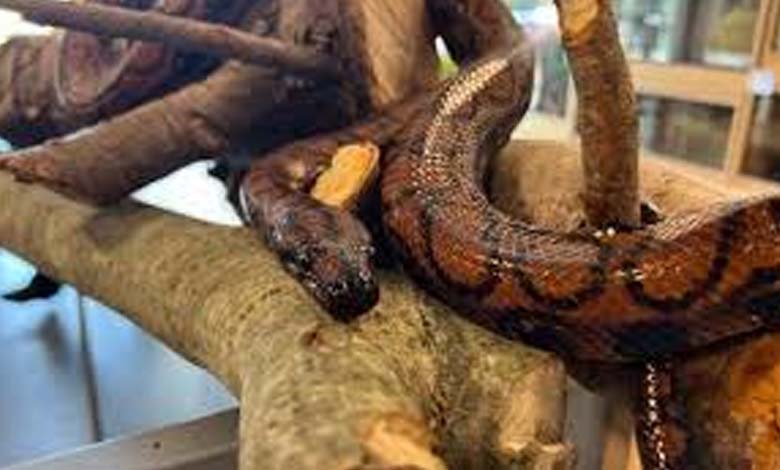Discovery of Brazilian Snake Reproducing Without Mating

A team of experts at Portsmouth City College has uncovered a rare case of parthenogenesis, where a Brazilian rainbow boa produced 14 offspring without the need for mating.
According to the British newspaper “Daily Mail,” parthenogenesis is a form of reproduction that occurs without fertilization, where certain species can produce offspring using only their genetic material. This is the third recorded instance of parthenogenesis in a captive Brazilian rainbow boa worldwide.
Pete Quinlan, an animal care specialist, has been looking after the snake for the past nine years after it was rescued by the Royal Society for the Prevention of Cruelty to Animals (RSPCA). Over the past two years, the snake has lived at Portsmouth City College without any opportunity to mate.
-
Discovery of the “largest snake in the world” .. weighing 200 kilograms and measuring 8 meters (photos)
-
Warnings of Deadly Spiders Potentially Invading U.S. States
Quinlan stated, “We thought the snake was male and named it ‘Ronaldo’ after the famous Brazilian footballer. But when we noticed it was becoming unusually plump, we didn’t for a moment think it could be pregnant.” A student was surprised to find 14 baby snakes in the enclosure.
Catherine Mitchell, a spokesperson for the British Herpetological Society, explained that the offspring are clones of the mother. However, they have slight genetic differences due to varied gene expression.
-
German police hunt for a snake after escaping from its owner
-
Saudi Research Center Witnesses Birth of First Twin Caracals
Although these non-venomous snakes originate from South America, they are kept and bred as pets in other parts of the world, including the United Kingdom.












